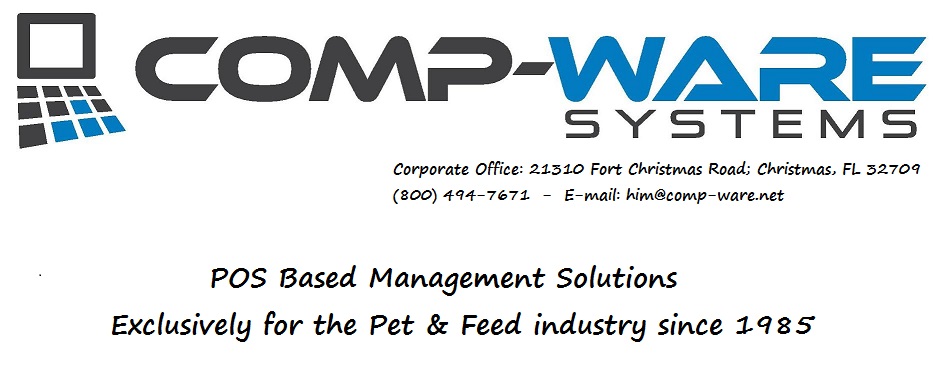Small Business Stress Management
Small business stress management, every owner and manager appreciates the issue. In fact, It might send you running off to an hourly pay job.

Stress, small business owners cannot avoid it. Sometimes it seems to be lurking around every corner. Occasionally you feel it watching you, waiting to pounce. But most of the time it’s just there. Everywhere. Does stress management for the small business owner truly exist?
Keep reading for information on small business stress management including:
- Understanding stress and its causes
- Negative reactions to stress
- Positive reactions to stress
- Finding your way to a positive reaction

Understanding Stress and Its Causes
small business stress management

We often hear the word stress, but do we really understand it? Stress is a reaction that happens when we are mentally or emotionally overloaded or strained. It might begin with a challenge or threat. Our bodies are programmed to react to these challenges in a “fight or flight” reaction.

This reaction offers us the chance to either stand up to the challenge or flee from it. This proves quite useful when an alligator threatens to attack you. Also, it helps when you need to meet a deadline. In fact, stress is a great motivator.
The adrenal glands and stress
In our everyday lives, stress comes from many angles. Demands from work, family, relationships, money, and even hobbies often create stressful situations. Most of these we manage throughout the day, often without much thought. For instance, when your toddler falls and needs medical attention, you probably don’t sit down and think about it. In fact, your reaction most likely just happens in response.
However sometimes stress from one or more sources builds to what seems like an unmanageable amount. That might cause a negative reaction by you or perhaps no reaction. Indeed, the more complicated our lives become, the more likely this problem will surface. Small business stress management concerns are no different.
Regardless of the source of your stress, it’s important that you find positive means to manage and resolve it. Back to the alligator: if you choose to run, you might survive. If you can punch him as some have, you might survive. However, if he is headed for you and you freeze, you might become his dinner.

Life is like that. We need to either evade stress or meet it head on, depending on the situation. A negative reaction, either freezing or otherwise, allows the source to take control.
Negative Reactions to Stress
for small business stress management
 With stress so prevalent in our lives, most of us experience those negative reactions from time to time. These fall into three main categories
With stress so prevalent in our lives, most of us experience those negative reactions from time to time. These fall into three main categories
- No action/ignore the problem
- No action is just that. Ignoring the cause of the stress. Indeed, ignoring the stress itself. Unfortunately, the alligator continues to trail you.
- Talk/no action
- Similar to the first reaction, talking about the alligator, or even to him, does nothing. The cause and stress persist.
- Five alarm response
- The five-alarm differs in that the person experiencing stress does react. However, he reacts just as strongly to a major concern as he does to a minor one. This causes problems with his own body (overtaxing the adrenal glands) and to others. After all, being chased by an alligator is not the same as someone arriving 10 minutes late for an appointment.
- In addition, the five-alarmer may over-react to the situation. He seems unable to keep his composure under pressure. This might be expressed by someone becoming very irate when an appointment shows up 10 minutes late, for instance.
Positive Reactions to Stress for Small business stress management
As we’ve seen, not reacting and over-reacting will not resolve stress. So what is a positive reaction? What should we do when confronted with a stressful situation?
Most find a three-step solution works best.
- Stay cool
- Communicate
- Actively solve
1-Staying cool and composed might seem impossible.
In fact, our fight or flight impulse might bring that adrenaline rush, causing us to lose our cool. However, to be able to properly manage the situation, the skill of staying cool becomes essential.
Consider an all too common scenario for a retail manager or owner. A supplier backorders a popular product. Customers don’t want a substitute and can’t wait for the item to arrive. Some become irritated and leave. One employee then shows up late and in a bad mood, complaining about her boyfriend. You then notice that the morning crew neglected to clean an area in desperate need. Turning around quickly, you accidentally tip over a display. Your reaction?
This might seem like an extreme example, but we all have days like this occasionally. What is your reaction? Do you stay cool or are you ready to scream? Would this be a bad time to check your blood pressure?
2-Communication Essential
In any small business stress management, you need to focus on communication. In our example above, finding a way to keep your customers from stressing helps you and the customer. Of course, some may not stay cool. However, if you are calm, it helps to calm all those around you. Excitement and agitation spread to those around you. Likewise, a calm attitude spreads to others, too.
This might not be the best time to discuss attitude and timeliness with the employee. After all, you are on the sales floor with customers all around. However, communicate to her that she is late and you will need to speak privately. Again, keep a calm attitude while discussing with her. You might find that she calms and her attitude changes. And who needs a stressed employee working with customers? In fact, she might be best assigned to clean the area in need. This solves two problems, the cleanliness of the area and allowing her time to diffuse.
You can’t talk the rack into jumping up and putting itself together. However, you can ask an employee to please reassemble while you manage the other problems. Again, with that cool demeanor. You might even manage a smile.
But communication is not just for the immediate situation and people. If you find these days are frequent, a team meeting held when you can calmly discuss the issue might be in order. Also, discuss the inventory issues with your suppliers. They may not be aware of the urgency in some products.
Beyond that, communicate with yourself. Yes, we all speak with ourselves, out loud or in our head. It’s important to understand why the situation is causing stress. The rack was not the cause. It was a build up. You need to make yourself very aware of that. Have a little private discussion. Make notes. And get ready for solutions!
3-Actively Solve
Too many people stop at step 2. They react, either calmly or not. And they let others know they are unhappy. They may even specify needs to meet.
However, without action, there is no solution. You need to put a plan into action.
What? You have no plan? Indeed, that is part of the action. Make a plan. Then work your plan.
For instance, your employee no doubt understands you are upset with her. In fact, depending on how cool you were or were not, she might be acutely aware. You have communicated. Now on to step 3, actively solve.
If this is a first or infrequent issue, your plan might be to have a short talk with her and see how you can ensure it does not become frequent. However, if this is a pattern, you might need a more detailed plan. This might include a discussion with her on steps you will take. That is the planning stage. Then follow through. Ensuring you solve the problem helps to alleviate further stress from it.
With any problem, it is very important to find the actual problem and what is causing it. Mopping up water on the floor doesn’t fix a leak in the ceiling.
Many problems are best tackled with a note-making session.
27 Tip for Small Business Stress Management
- Accept failure. If the solution does not work, accept the failure and find a better solution. The old saying of “throwing good money after bad” applies to time, too. In fact, we often waste time on a failure, rather than using that time to move forward. Know when to let go.
- Analyze the reasons that failure occurred. Take precautions to avoid repeating.
- Make a list. Separate into pros and cons. Or list possible solutions. Often, writing the issues and solutions helps
- Set a schedule. Knowing what and when helps offset those last minute issues. However, make sure you leave a little leeway for those little stress causes that inevitably pop up! In fact, take a few minutes each morning to set your daily schedule. Doing so helps keep you organized and that leads to less stress.
- Step back. Take time to breathe! Rushing into action may seem necessary. However, often what we need is time to understand the situation, analyze, and find a good response. Also, don’t overthink. Take time to step back. Perhaps even sleep on the issue.
- Understand your response. Is it appropriate? Are you reacting to the real problem?
- Forgive yourself. Mistakes happen.
- Keep a proper perspective. Self-pity isn’t productive. Neither is anxiety.
- Accept responsibility. Again, mistakes happen. Accepting responsibility helps you find ways to avoid repeating.
- Think positive.
- Accept limitations. These include time, budget, and expertise. Indeed, constantly exceeding these limitations adds even more stress.
- Know when to say no. Stop the project. Fire the employee. Let the client go elsewhere. Often, saying no brings incredible stress relief.
- Stay connected with family, friends, and fellow business owners. These people help you keep a proper perspective, and offer support and encouragement. Good connections help find solutions. They also offer stress relief. Sometimes, you need to connect with an understanding person to vent before moving forward in the solution.
- Find good employees and train them for their roles.
- Delegate. You cannot be everywhere. Delegating to reliable people enables you to accomplish much more with less stress.
- Automate where possible.
- Develop a system for common or routine tasks. This saves you time and enables you to delegate these tasks when needed.
- Consider a timeout. Take a break with a trusted friend or family member. In fact, often a short escape enables you to find a better solution.
- Consult with your connections and with other professionals. Sometimes we become blind to our own situation. A fresh viewpoint may offer the best solution.
- Keep a list of at least five stressful events that you successfully resolved. Read through these occasionally. And refer to them when stress begins to overcome.
- List your goals and reassess them often. Don’t let goals slip away. Staying focused on your goals helps you with small business stress management.
- Make a stressful day a challenge. Set goals, prioritize, find encouragement. Then, reward yourself for a challenging day success.
- Avoid information overload. Schedule set times to check your email and social media accounts. Staying connected to these continually often increases stress dramatically. And of course, schedule time to completely unplug. It’s difficult to impossible to relax while using your phone or other electronics.
- Start with basics: eat healthy, keep hydrated, take breaks and chat with others. Include exercise, even if it means a short walk during a break. Many studies prove the benefit of exercise in battling stress. Likewise, eating well and staying hydrated aids in stress management.
- Prioritize sleep. Yes, many of us fall short of getting enough sleep. In fact, lack of sleep often adds to your stress.
- Balance your work and life. Your business should not run your life. Instead, it should be a part of your life.
- Prioritize your relationships. Business management is very important. However, your family and close friends offer support and encouragement through the good and the bad. Keep your priorities straight.
Read: Reinventing Retail



Recent Comments